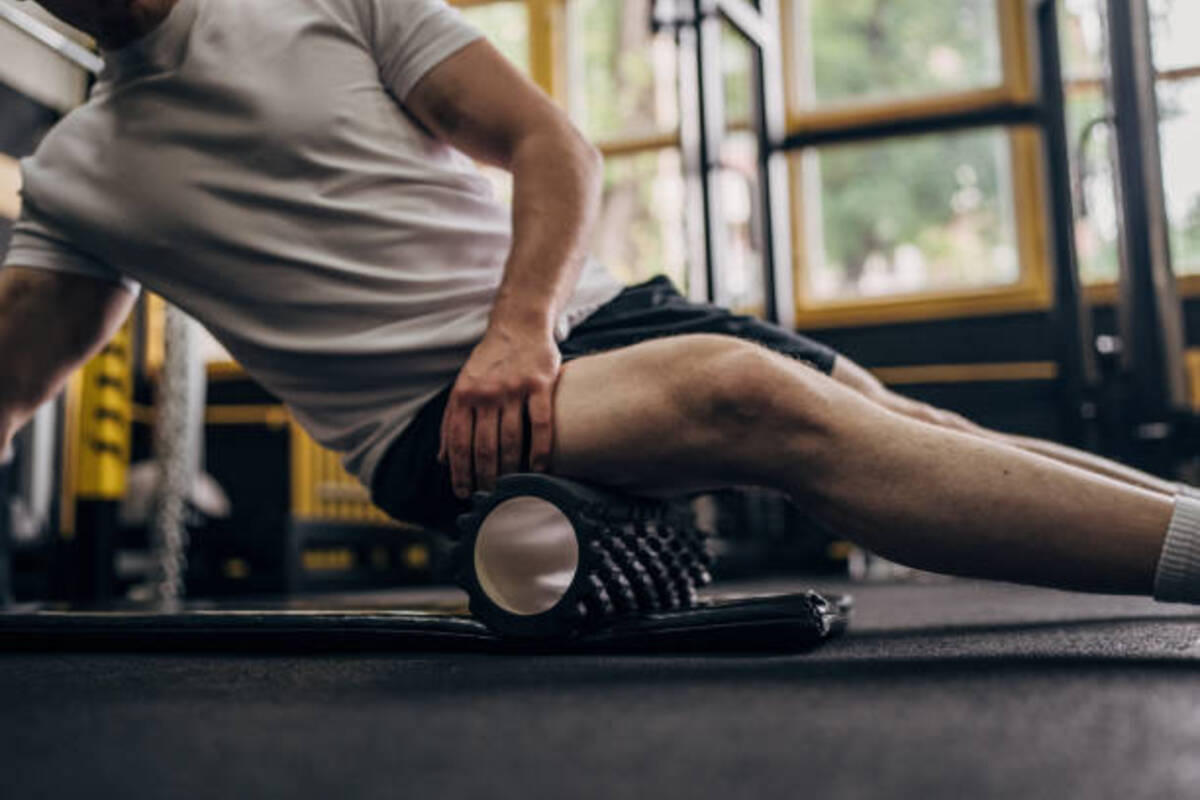Creatine is one of the most popular supplements taken by athletes and fitness enthusiasts, which works by supplying energy to the muscles and supporting strength increases. This white powdered supplement is often taken in the form of creatine monohydrate mixed into water. If you’re looking to increase your muscle mass, support enhanced recovery, and possibly also enhance cognitive performance – creatine might be a good supplement for you.
However, it’s important to understand that creatine works by drawing water into your muscle cells, which can come with some side effects when first starting. Below, we’ll explore what you need to know about water weight and creatine and answer all of your “does creatine make you bloated” concerns to help guide you as you start this supplement.
Understanding how creatine works

Creatine is a naturally occurring compound that is made in the body from amino acids or found in external food sources such as meat. When creatine is taken as a supplement, it goes directly into your skeletal muscles, which convert it into a compound of creatine and phosphoric acid. From here, another compound is made known as adenosine triphosphate (ATP).
You’re likely to remember ATP from high-school science classes, known as a primary energy source for cells. The ATP created by creatine helps supply your muscles with energy to support your workout, thereby helping to improve muscle growth. Taking creatine can also help speed up muscle recovery, increase anabolic hormones, and support healthy cell hydration to reduce muscle cramping.
Since creatine draws water into the body’s cells, this also means you may experience some mild bloating. The water drawn into the cells can cause you to retain water — so don’t be alarmed if you start to see the scale go up a few pounds.
Does creatine bloating go away?

If you’re just getting started taking creatine for the first time, you may be advised by a personal trainer or gym expert to begin with what is known as a “creatine loading phase.” This method involves starting with a higher dose of creatine for about a week and then dropping the dose to a lower maintenance dose that you can stay on. The idea behind this “loading” approach is to quickly load up your muscles with creatine to begin seeing the benefits as quickly as possible. Many studies do support the idea of creating loading, suggesting that it can quickly boost muscle stores of creatine up to 20 to 40%.
While creating loading does have its benefits, you’ll want to be aware of the harsh reality associated with it, too. Quickly taking large doses of creatine, such as 20 or 25 grams per day, can come as a shock to the body, causing uncomfortable bloating and water retention. The bloating associated with creatine can make you feel puffy or feel as if you’ve gained weight, even though it is just water weight. Water weight tends to be most noticeable in the abdomen, arms, and legs.
Although creatine bloating is uncomfortable in its initial stages, the good news is that it will subside with time. Water weight gain from creatine is only temporary, usually subsiding within a few days to a few weeks for most people. How long water weight will last depends on several factors, such as the amount taken and your genetics.
Avoiding the creatine bloat

The benefits of creatine are impressive — so it’s natural to feel torn on whether you should give this supplement a try or avoid the dreaded water retention associated with it. But the good news is there are ways you can avoid or minimize the initial water weight retention. One way to do this is to avoid the recommended “creating loading phase” and begin with a lower dose immediately.
People who are especially prone to water retention may find that adjusting slowly works better than flooding their cells with a large amount of creatine at once. Instead of 20 to 25 grams, begin with a smaller dose of creatine such as 3 to 5 grams a day, to start. Even though it may take a bit longer to see the benefits of creatine, you’ll feel more comfortable and ultimately end up in the same place as doing the loading phase, yet without the water weight.
Should I take creatine when trying to lose belly fat?

If you’re on a weight loss journey, you don’t need to avoid creatine just because you’re concerned about retaining water. Starting with a low dose will minimize the visible water weight gain and will subside over time. Creatine can not target belly fat directly, however, it is still a good supplement to consider for anyone who is regularly strength training. By enhancing your strength training workouts, it can indirectly help you achieve your weight loss goals.




